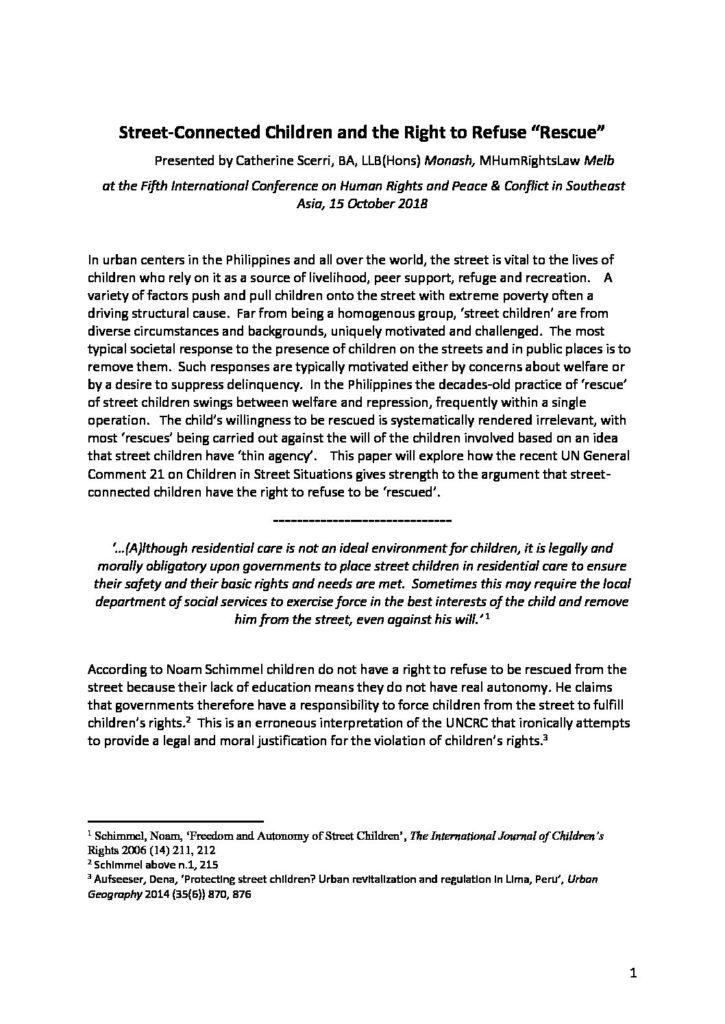
Street-Connected Children and the Right to Refuse “Rescue”
Summary
In urban centers in the Philippines and all over the world, the street is vital to the lives of children who rely on it as a source of livelihood, peer support, refuge and recreation. A variety of factors push and pull children onto the street with extreme poverty often a driving structural cause. Far from being a homogenous group, ‘street children’ are from diverse circumstances and backgrounds, uniquely motivated and challenged. The most typical societal response to the presence of children on the streets and in public places is to remove them. Such responses are typically motivated either by concerns about welfare or by a desire to suppress delinquency. In the Philippines the decades-old practice of ‘rescue’ of street children swings between welfare and repression, frequently within a single operation. The child’s willingness to be rescued is systematically rendered irrelevant, with most ‘rescues’ being carried out against the will of the children involved based on an idea that street children have ‘thin agency’. This paper will explore how the recent UN General Comment 21 on Children in Street Situations gives strength to the argument that streetconnected children have the right to refuse to be ‘rescued’.
Discussion
Users can discuss this report and make suggestions for future updates. You must be signed in to submit a comment.
No comments
Join the conversation and
Become a Member Existing member loginbecome a member.